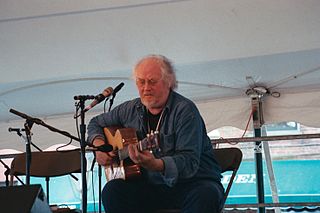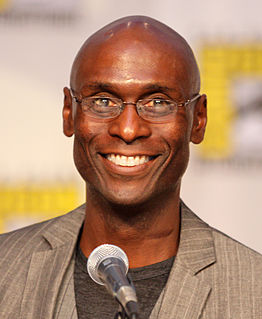A Quote by Tom Waits
In terms of black music - the only music that we can call our own, that was really born here - I don't think a lot has been done to chronicle the relations between American history and where black music fits in.
Related Quotes
I was interested in a whole range of music that I used to play, popular music -- particularly American music -- that I heard a lot of when I was a teenager," "I think at a certain point it dawned on me that myself playing this music wasn't very convincing. It was more convincing when we played music that came from our own stock of tradition. ... I certainly feel a lot more comfortable playing so-called Celtic music.
I call this my church house trilogy. Souls' Chapel really was music from the Mississippi Delta, which to me is a church within itself. The Delta is the church of American Roots music. The Badlands is a cathedral without a top on it. And the Ryman has been called the Mother Church of Country Music, but to me it's the Mother Church of American Music. If you can think it up, it's been done there. In my mind, this is kind of a spiritual odyssey as much as anything else, and I had the settings of three churches to make it in.
I think I'm really part of a whole generational movement in a way. I think a lot of other people since and during this time have gotten interested in writing what we can still call experimental music. It's not commercial music. And it's really a concert music, but a concert music for our time. And wanting to find the audience, because we've discovered the audience is really there. Those became really clear with Einstein on the Beach.
Black History is enjoying the life of our ancestors who paved the way for every African-American. No matter what color you are, the history of Blacks affected everyone; that's why we should cherish and respect Black history. Black history changed America and is continuing to change and shape our country. Black history is about everyone coming together to better themselves and America. Black history is being comfortable in your own skin no matter what color you are. Black history makes me proud of where I came from and where I am going in life.
Dad's fear, especially when I was 18, was that, in the music industry in the U.K., there wasn't really anybody I would aspire to who was of black origin and who was successful. It was mainly black American musicians in the charts and, at that age, I think you look for someone you can identify with, and there wasn't really anyone.
Music expresses feeling, that is to say, gives shape and habitation to feeling, not in space but in time. To the extent that music has a history that is more than a history of its formal evolution, our feelings must have a history too. Perhaps certain qualities of feeling that found expression in music can be recorded by being notated on paper, have become so remote that we can no longer inhabit them as feelings, can get a grasp of them only after long training in the history and philosophy of music, the philosophical history of music, the history of music as a history of the feeling soul.



































